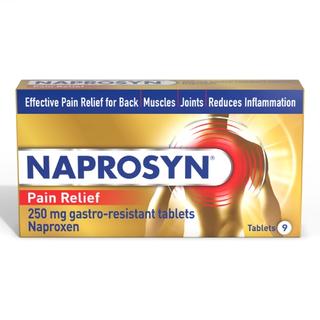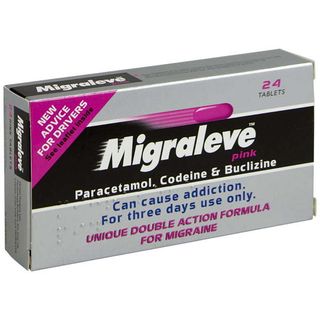
- Fast, discreet delivery
- 100% UK-based pharmacy
- Free advice and support
- We're rated 4.9 out of 5
Based on over 30,000 reviews collected on Google and Reviews.io.
We maintain the highest possible regulation for a UK online pharmacy, ensuring your experience is safe, and confidential.
- 3
- 3
Aspirin 300mg Information
What is Aspirin and what is it used for?
For those who want a pain relief product that can prove effective for many different types of pain, Aspirin Tablets are an excellent choice. Aspirin contains an active ingredient known as a non-steroidal anti-inflammatory drug (NSAID) that can help to alleviate a wide range of pain and inflammation symptoms stemming from a variety of problems, including:
- headaches
- toothache
- period pain
- rheumatic pain
- sciatica
- migraines
Aspirin can also prove effective in alleviating the symptoms of fever, flu, colds, and sore throats. It is therefore an effective form of medication to keep at home for the treatment of a wide range of symptoms. Aspirin is also a tried and tested treatment that has been used for many decades.
Asprin 300mg Tablets and Dispersible Tablets are available in boxes of 32 tablets and are suitable for use by adults and children over the age of 16 years.
How does Aspirin work?
The active ingredient contained within Aspirin Dispersible tablets is acetylsalicylic acid. It blocks the functioning of the enzyme cyclo-oxygenase (COX). This enzyme helps produce prostaglandins, which cause symptoms such as inflammation and pain. COX also helps produce thromboxane, which makes blood clots happen by causing platelets to clump up.
Preventing COX from functioning will reduce the production of these chemicals, alleviating pain and inflammation. The effect of preventing blood clots means that aspirin can also increase the chances of surviving a heart attack, as blood clots can block the blood supply to the heart.
Alternatives to Aspirin
If you are unsure whether Aspirin is the right treatment option for you there are plenty of non-prescription alternatives that can be used to manage pain and inflammation, for example:
- Ibuprofen
- Paracetamol
- Solpadeine
- Topical Treatments - Ibuprofen gel or Movelat Cream
Paracetamol belongs to a different group of painkillers and can be safely taken at the same time as Aspirin 300mg tablets if extra pain relief is required. If pain persists, it is advisable to see a doctor for further advice.
Aspirin warnings
Make sure to read the following carefully before using Aspirin tablets.
You should not use Aspirin tablets if:
- You are currently breastfeeding or in the last few months of pregnancy
- You have a stomach ulcer or have had them in the past
- You suffer from a bleeding condition such as haemophilia
- You are allergic to aspirin, NSAIDs, or any of the other ingredients contained in this medicine.
- Unless specifically prescribed by a doctor, do not give this medicine to children under 16 years old.
- Make sure to consult with a doctor before using this medicine if:
- You suffer from intolerance to certain sugars, as this medicine contains lactose
- You have asthma
- You are suffering from dehydration
- You are deficient in glucose-6-phosphate dehydrogenase
Consult with a doctor or pharmacist before taking this medicine if you are also taking any of the following medicines:
- Metoclopramide
- Blood-thinning medicine (such as heparin, warfarin and nicoumalone)
- Steroids or anti-inflammatory medicine
- Corticosteroids (such as hydrocortisone)
- Epilepsy medication (such as phenytoin or sodium valproate)
- Medicines for high blood pressure (such as diuretic tablets, angio-II receptor antagonists, or ACE inhibitors)
- Probenecid or sulphinpyrazone
- Antacids
- Antidepressants (such as citalopram)
- Methotrexate
Always inform your doctor of any medicines you intend to take. Consult with a doctor if you take aspirin regularly and plan on taking another medicine.
Read the entire Patient Information Leaflet contained within the product packaging and all packaging before using any medicine.
Aspirin directions
Adults, including the elderly and children 16 years and over: Swallow 1-3 tablets before meals with water, every 4 hours. Dispersible tablets can be dissolved in water before taking them.
Please do not exceed the maximum daily dose of 12 tablets in any 24-hour period and leave at least 4 hours between doses.
Aspirin 300mg ingredients
The active ingredient contained in this medicine is: Aspirin 300mg.
Aspirin 300mg Dispersible Tablets also contains the following inactive ingredients: Dried maize starch powder, Sodium lauryl sulphate, Lactose, sodium saccharin recrystallised (76% sacc), anhydrous citric acid powder, anhydrous citric acid granules, calcium carbonate, povidone, isopropyl alcohol, purified water.
The following inactive ingredients are also contained in Aspirin 300mg tablets: Lactose, sodium saccharin, potato starch, citric acid, sodium lauryl sulphate, talc and calcium carbonate.
Aspirin side effects
Not everyone will experience side effects, however, some of the more commonly reported side effects of Aspirin tablets include:
- Feeling or being sick
- Swelling or ulcers in the stomach lining
- Bleeding under the skin
- Increased bleeding
- Hearing problems
- Nosebleeds (consult with a doctor immediately if a nosebleed lasts for a long time).
If any of these effects concern you or this medicine affects you in a different way, stop using this product and consult with a doctor.
Aspirin 300mg Tablets & Dispersible Tablets reviews
Aspirin 300mg Tablets & Dispersible Tablets FAQs
What should I know before taking aspirin?
Most people do not suffer from any side effects from aspirin. Sometimes side effects such as nausea, stomach pain and indigestion are experienced. If the aspirin is taken alongside food, these side effects are less likely to appear.
Some more serious side effects may occur in rare cases. These include bleeding in the intestines or stomach and ulceration. Such side effects are more common in elderly people than younger people. If you experience blood in vomit or stools after using this medicine, stop using it immediately and consult a doctor.
If you feel the need to use Disprin for more than three days, consult with a doctor or pharmacist first.
Avoid taking painkillers for headaches too often, as this can make the headaches worse.
Why shouldn't aspirin be given to children under 16 years of age?
Aspirin should only be given to children under 16 years old if prescribed by a doctor. Use of aspirin in children has been linked to a condition called Reye's syndrome, which while rare, can prove fatal. The exact cause of Reye's syndrome is unknown, but it appears to be associated with the use of aspirin in children with a virus. For children under 16, there are plenty of paracetamol and ibuprofen products that have no association with Reye's syndrome to use.
Can I use aspirin while pregnant or breastfeeding?
Aspirin may have harmful effects on the baby, and can cause a delayed or prolonged labour. Consult with a doctor before taking aspiring at any stage of pregnancy, and never use aspirin during the third trimester.
Aspirin in significant quantities can pass into breast milk and cause harm to a nursing child. Consult with a doctor before using aspiring while breastfeeding.
Can I take aspirin with other medicines?
Consult with a doctor or pharmacist before using aspirin alongside other medicines, including herbal and non-prescription medicines.If aspirin is taken alongside other medicines that increase the risk of bleeding, there may be an increased risk of bleeding.
You should not take aspirin alongside the medicine methotrexate, as aspiring reduces the body's ability to remove methotrexate.
If aspirin is taken alongside acetazolamide or loop diuretics (suc as furosemide or bumetanide), there can be an increased risk of experiencing side effects.
Aspirin can have the effect of reducing the absorption of vitamin C in the gut.
Related Treatments
Visit our Pain page for treatments, advice and FAQs.
Ordering as easy as 1, 2, 3
1. Find the ideal treatment
2. Get a free consultation
3. Enjoy speedy delivery



